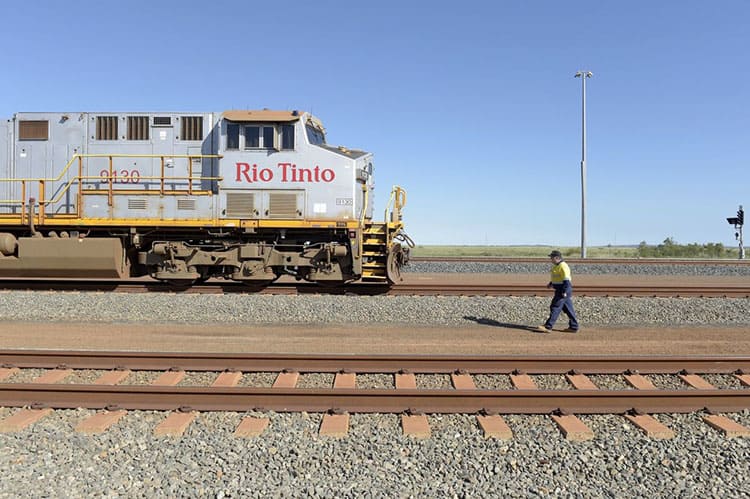
Rio Tinto Group announced a joint venture with the Guinean government and the Winning Consortium Simandou to develop infrastructure for the world’s largest untapped iron ore deposit.
“The parties will now work on next steps including shareholding agreement, finalizing cost estimates and funding, and securing all necessary approvals and other permits and agreements required to progress the co-development of infrastructures,” Rio said in a statement.
The rise of the big Simandou project in Guinea was delayed for several years by disputes over ownership and infrastructure, as well as the political situation in Guinea. Still, a deal was quickly struck after Rio CEO Jacob Stausholm said in an interview that “we could be very close” to an agreement.
Simandou is divided into four units: 1 and 2 are controlled by the Winning Consortium Simandou with the support of Chinese and Singaporean companies, while Rio Tinto and Chinalco Aluminum Corporation of China own 3 and 4.
“This milestone paves the way to progress the shareholder agreement, and secure the necessary financing to construct a strategic corridor with more than 600 kilometers of rail infrastructures extending from south to south-west of the Republic of Guinea, as well as port infrastructure in the Forécariah prefecture in Maritime Guinea,” Rio’s statement added.
Simandou is a possible huge new source of supply for Rio, which is the world’s largest iron ore producer. China, with the development of the project, intends to weaken the dependence of its steel industry on production in Australia.
“The involvement of Rio Tinto would be definitely very positive for the Simandou project” given it is “a very experienced mining company in implementing large-scale, complex infrastructure projects around the world,” Philip Kirchlechner, director at Iron Ore Research Pty, said by phone. “However, it doesn’t at all remove sovereign risk in Africa,” he said, adding “the complexity of building a rail through very difficult terrain is also very challenging.”
Learn how to trade commodities and stocks of the largest companies with Top Forex brokers in Australia
China has recently begun reshaping the global iron ore market by creating a new state-owned group that is set to become a hub for major mining investment overseas, including Simandou.
Previously, two consortiums in Simandou entered into an agreement to jointly build a railway linking the mine to the planned port. As part of the deal, the government received a 15% stake in infrastructure, corresponding to its ownership stake in the mines. However, talks about how the railway line will be paid for dragged on.
Negotiations focused on whether the government should pay its share of the cost of building the railway and the port. Rio and the Winning consortium offered an interest-free loan to cover the government’s expenses, while the government insisted on transferring its share for free.
It is estimated that the railroad could cost over $10 billion, although an updated cost forecast is not expected until an agreement is reached. No monetary details of the new joint venture were provided in the application.
The Guinean government sought to enforce this on the companies involved. Earlier this month, the government ordered both consortiums to cease operations in the country after they failed to reach a cooperation agreement. Mines Minister Moussa Magassuba also said the country was ready to develop the project without the participation of the two consortiums if an agreement was not reached.
The launch of Simandou development will mark the CEO’s second major victory since striking a deal with Mongolia earlier this year for Rio’s flagship copper project. Since he took over the company, the CEO has prioritized moving stalled projects forward and rebuilding the company’s reputation after a series of failures.
Subscribe for our newsletter
Get Forex brokers reviews, market insights, expert analytics and education material right into your inbox for free!